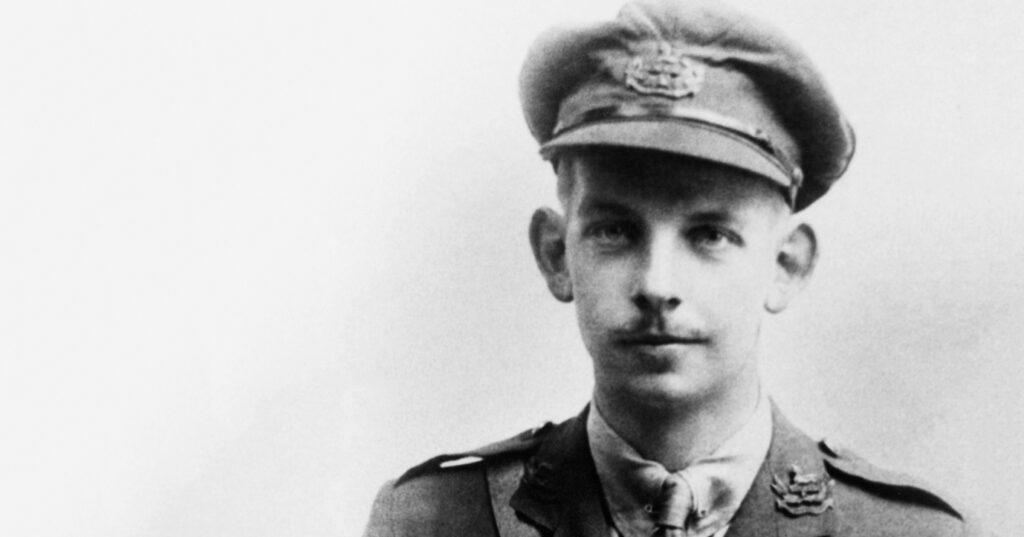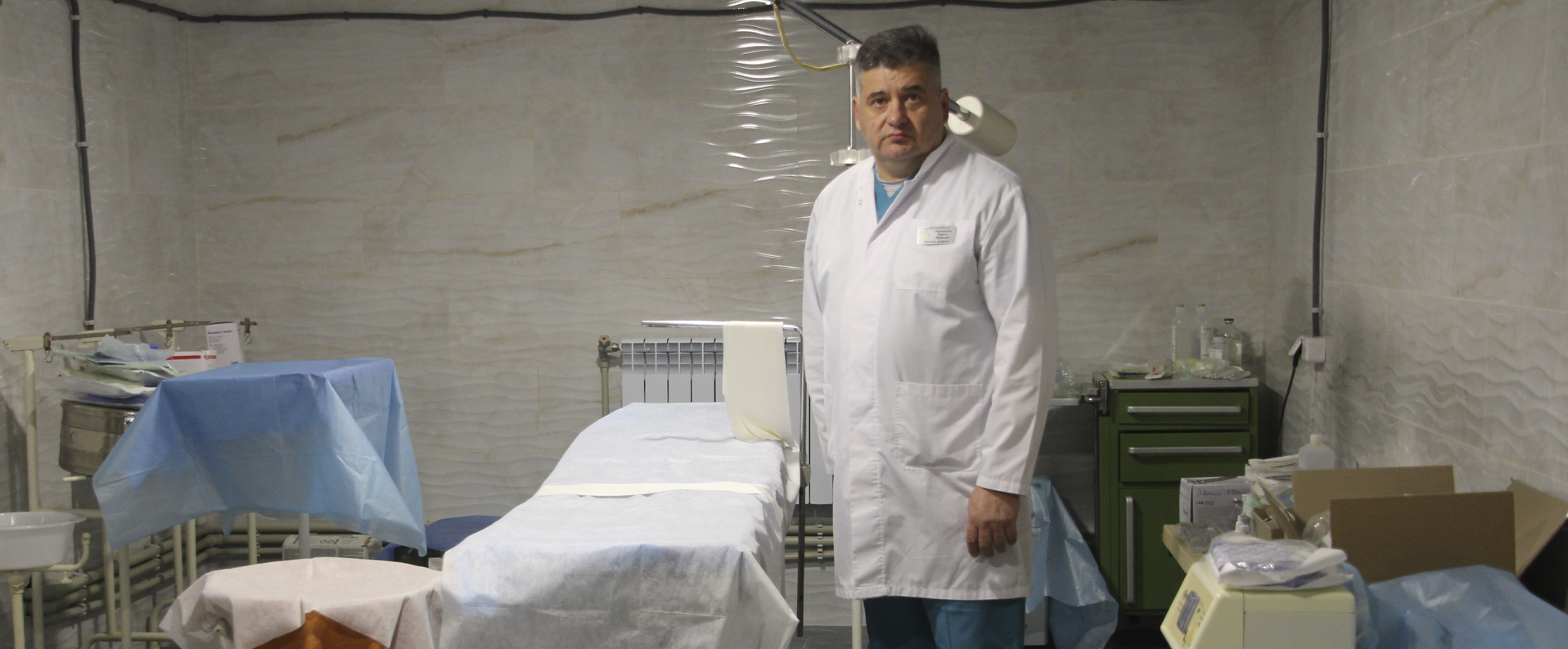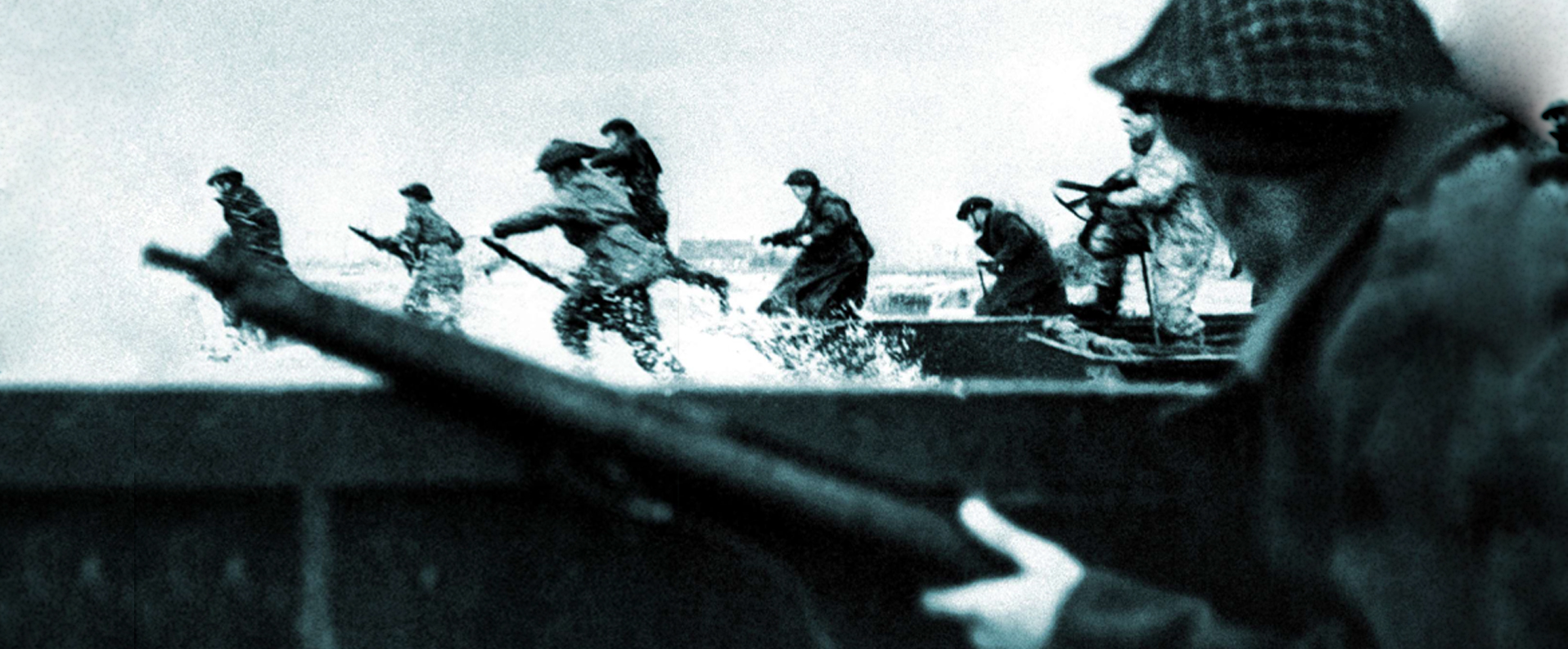
Published in Britain at War in June 2018.
Brigadier Manley Angell James VC, DSO, MBE, MC: leadership
Manley Angell James was born in Odiham, Hampshire, on 12 July 1896. He was the son of Dr John James and his wife Emily. After leaving Bristol Grammar School aged eighteen, he had intended to follow his father into the medical profession. However, after the outbreak of the Great War in August 1914, he was commissioned on 1 December as a temporary second lieutenant to the 8th Battalion, The Gloucestershire Regiment.
In July 1915, the 8th Battalion formed part of the 57th Brigade of the 19th (Western) Division (also known as the “Butterfly” Division) and James served as a temporary lieutenant. Soon after, he was invalided home after being severely injured in the thigh at La Boiselle on the third day of the Battle of the Somme. For his handling of the battalion’s Lewis guns, he was Mentioned in Despatches. In December, he returned to France as a member of Brigade HQ staff.
However, he lobbied for a return to active duty and by early 1917 he was back with his regiment at the front. After being promoted to acting captain in February 1917, he was wounded by shrapnel later that month and was again Mentioned in Dispatches in April.
The 8th Battalion saw further action at Wytschaete and Messines Ridge. “A” Company, with James in command, played a key role in the capture of a vital strongpoint at Druids Farm on 9/10 July 1917. A week later, The London Gazette announced he had been awarded the Military Cross (MC) for his actions.
On 21 March 1918, the first assault of the German Spring Offensive was launched. During this attack – the ‘Kaiser Battle’ – the 8th Gloucesters were subjected to one of the most intensive bombardments of the war. Along a forty-mile front, a total of 6,473 German guns opened up for several weeks, firing both explosives and gas. In a letter to James’s father, the commanding officer of the 8th wrote: ‘The battalion fought most gallantly on the 21st and 22nd and your son as usual was untiring. “A” Coy. had lost 75% of their men and were overwhelmed by fresh masses of the enemy. On the 23rd only stragglers came out.’
The survivors were convinced that their captain was dead, having seen him fall in battle. On 25 April 1918, the British Red Cross wrote to James’s mother, reporting that two eyewitnesses had seen him dead: ‘Capt. James was shot in the head by a bullet and died instantly; I saw it,’ said one private, and two other men reported him dead. However, on 24 May, a telegram was sent to the War Office saying that James was a PoW. On 28 June 1918, The London Gazette announced that he had been awarded the VC:
“Capt. James led his company forward with magnificent determination and courage, inflicting severe losses on the enemy and capturing twenty-seven prisoners and two machine-guns.
“He was wounded, but refused to leave his company, and repulsed three hostile onslaughts the next day.
“Two days later, although the enemy had broken through on his right flank, he refused to withdraw, and made a most determined stand, inflicting very heavy losses on the enemy and gaining valuable time for the withdrawal of guns. He was ordered by the senior officer to hold on to the spot ‘to the last’, in order to enable the brigade to be extricated. He then led his company forward in a local counter-attack on his own initiative, and was again wounded. He was last seen working a machine-gun single-handed, after having been wounded a third time.
“No praise can be too high for the gallant stand made by this company, and Capt. James, by his dauntless courage and magnificent example, undoubtedly enabled the battalion to be withdrawn before being completely cut off.”
In fact, after receiving his third wound, James had been taken prisoner on 23 March. With wounds in his neck, shoulder, jaw and stomach, James had been taken to hospital, and spent the rest of the war in various PoW camps. After the Armistice, he was released, arriving home on Christmas Day 1918. He received his VC from George V at an investiture at Buckingham Palace on 22 February 1919. After the war, James found it hard to gain a permanent Army commission, but he was finally commissioned as a lieutenant on 8 December 1920.
During the inter-war years, he served abroad a great deal, including in Germany and Egypt. He married Noreen Cooper, of Clifton, Bristol, in 1928 and the couple went on to have a son. By 1942, three years into the Second World War, James was a brigadier in command of 128th Infantry Brigade, which had prepared for desert warfare.
In February that year, the 128th joined other Allied forces on the Algerian coast. There followed fierce battles against overwhelming odds and James received the Distinguished Service Order (DSO). The London Gazette of 21 May 1942 reported: “Personally as brave as a lion, he was at the same time careful and solicitous about how he committed his troops.”
Naturally, the press hailed James’s remarkable double – a VC in the First World War and a DSO in the Second.
After the campaign in North Africa, he fought in Italy. In September 1943, he was wounded in the leg near Salerno and was eventually evacuated in a hospital ship to Egypt to recover. The next year, he trained troops for the D-Day landings. From 1945 to 1948, he commanded the British Air Force of Occupation in Germany. In 1948, he was appointed director of Ground Defence at the Air Ministry. He retired in 1951 and was made an MBE in 1958. Brigadier Manley James, VC, DSO, MBE, MC, died at his home in Westbury-on- Trym, Bristol on 23 September 1975, aged seventy-nine.
His gallantry and service medals were stolen in 1970 but recovered after a reward of £100 was offered for information leading to their safe return: the thief was jailed for six years. I purchased James’s medals at a Christie’s auction in 1991 and feel privileged to be the custodian of this wonderful soldier’s medal group.
Download a PDF of the original Britain at War article
For more information, visit:
LordAshcroftOnBravery.com


